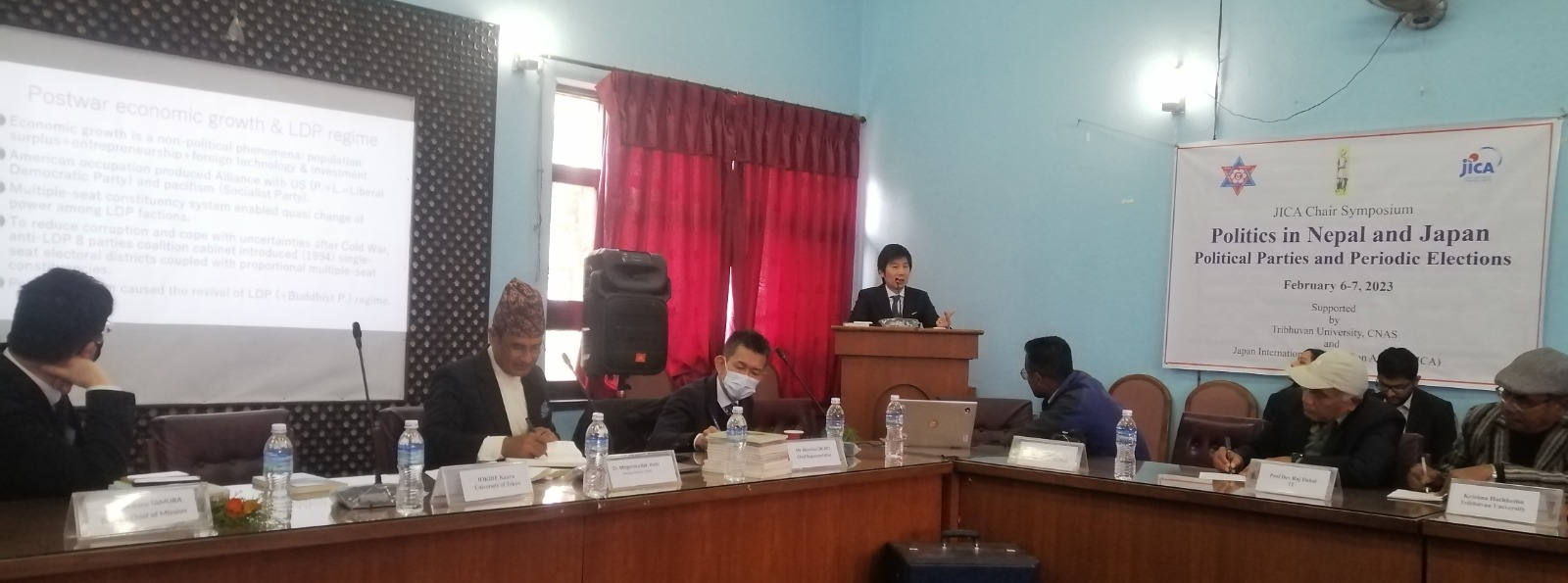

JICA Nepal co-hosted a two-day ‘JICA Chair’ academic seminar together with Tribhuvan University (TU), and Centre for Nepal and Asian Studies (CNAS). The theme for the seminar was “Politics in Nepal and Japan: Political Parties and Periodic Elections,” referring to the various changes in political and social settings. Similarly, the seminar also focused on the history of politics, the transition of party politics, and lessons learned through the process in Japan.
‘JICA Chair’ is an initiative of the Japan International Cooperation Agency launched intending to develop future leaders of developing countries. JICA Chair is organized in JICA partner countries in collaboration with the leading universities to strengthen existing research and education programs as well as become a starting point for new initiatives. JICA Chair’s activities include intensive lectures conducted by leading professors and lecturers dispatched from Japan to disseminate Japan’s development experiences in various fields such as politics, economics, public administration, law, and others.
The keynote speaker for the ‘JICA Chair’s seminar in Nepal was Prof. IOKIBE Kaoru from Tokyo University who is an expert on the Political and Diplomatic History of Japan. His lecture illustrated the development of the pre-WW2 and post-WW2 Japanese party politics in response to issues of violence, corruption, and policy inefficiency.
The Moderator/Speaker for the event was Prof. Dr. Mrigendra Bahadur Karki, Executive Director, CNAS (TU), and his topic for the speech was Political Process in Nepal: Political Parties, Elections, and Economic Development.
The round table discussion during the seminar highlighted the “Political Parties, the New Federal Parliament and Economic Prosperity of Nepal in Relations to Japanese Economic Development”, which included the participation of Professors from TU and media personnel. Topics such as philosophy, theory, and practices of political coalitions in the context of Nepal and Japan were discussed.